 Maybe you’re launching a business, trying to DIY your finances, or just tired of asking your accountant to translate everything. But when you search for help with bookkeeping, you’re flooded with 300-page textbooks, dry definitions, and enough accounting jargon to put you to sleep.
Maybe you’re launching a business, trying to DIY your finances, or just tired of asking your accountant to translate everything. But when you search for help with bookkeeping, you’re flooded with 300-page textbooks, dry definitions, and enough accounting jargon to put you to sleep.
That’s why we’ve rounded up 20 bookkeeping books for beginners that actually speak your language—clear, useful, and zero fluff. Whether you’re running a nonprofit, managing restaurant sales, or just trying to figure out what “debit” and “credit” really mean, you’ll find a book here that won’t waste your time.
Small Business Owners Have to Learn Bookkeeping—Here’s Why
Running a small business means wearing all the hats—marketing, sales, customer service… and yes, bookkeeping too. Even if you plan to hand it off eventually (smart move), you still need to understand the basics. Why? Because your business lives and dies by its numbers.
When you know how to read your books—even just the essentials—you catch problems faster, make smarter decisions, and stop relying on guesswork. You don’t need to become a CPA, but you do need to know what the heck is going on with your money.
20 Best Bookkeeping Books for Beginners

These books are sure to help you level up your bookkeeping skills in no time. Bonus: there’s no confusing jargon to be found here!
If you don’t read a single other book on this list, read this one. Seriously. Tailored for restaurant owners, this guide provides insights on leveraging QuickBooks for managing sales, payroll, inventory, and more.
The OG beginner’s guide. If bookkeeping makes your brain hurt, this book breaks financial jargon down with zero shame. Great for non-finance folks who want to stop winging it.
An up-to-date ultimate guide to mastering QuickBooks Online, including tracking expenses, automating invoices, and staying tax-ready.
Perfect if you need someone to hold your hand through the basics. This one is for small business owners who want clear, simple instructions on the essential skills of bookkeeping—no finance degree required.
Part mindset, part strategy. Lisa teaches you how to stop playing small and start building a bookkeeping biz that actually pays you what you’re worth.
If terms like “equity” and “liabilities” make your head spin, this is the no-BS beginner guide that finally makes it make sense.
Xero users—this one’s your playbook. It’s built for pros but beginner-friendly enough to get your bookkeeping systems set up like a real operation.
Running a nonprofit doesn’t mean you get to ignore the books. This handy guide keeps it simple, clean, and tailored to the world of donors, grants, and program budgets.
If QuickBooks feels like a second language, Crystalynn breaks it down step-by-step. You’ll actually know what to do when the bookkeeping software asks “what account?”
This one’s as no-nonsense as the title suggests. Ideal if you want to understand the basics fast and finally feel like you know what’s going on behind the numbers.
Nonprofit finance has its own weird rules—this guide makes sure you don’t screw them up. Especially good for small teams wearing too many hats.
From setting up to tax time, this one walks you through QuickBooks Online like a real person—not a robot. You’ll stop second-guessing every entry.
More advanced, but still accessible. If you’re thinking about offering robust bookkeeping as a service or leveling up your DIY skills, this is your next move.
You’re probably leaving money on the table. This book walks through deductions you’ve never even thought of—so you can stop overpaying Uncle Sam.
If you want something visual, simple, and made for small business owners, this is your book. It doesn’t assume you already know what a general ledger is.
Solid starter pack. Covers both bookkeeping and accounting without talking down to you or turning it into a snoozefest. Who knew it was possible to make accounting accessible?
Short, to the point, and actually understandable. Great for when you want to learn the terms but don’t want a 400-page textbook.
Exactly what it sounds like—straightforward advice for small business owners who need clarity, not complexity.
Not technically a bookkeeping book, but super helpful. Teaches you how to read and understand financial statements so you’re not flying blind.
This one flips the whole accounting mindset upside down—and it works. A must-read if you’re making money but never seem to have any left.
How to Choose the Right Bookkeeping Book for You

If you’re going to spend your time (and money) on one book, it better speak in simple language and solve your actual problems. Here’s how to find your match:
Know Your Starting Point
Brand new to bookkeeping? Start with something beginner-friendly like Bookkeeping For Dummies or Accounting Made Simple. Already messing with software? Go for something QuickBooks- or Xero-specific.
Choose Based on Your Business Type
Running a restaurant? There’s a book for that. A nonprofit? Covered. Make sure the advice is tailored to the kind of business you’re running. Generic info is fine—but industry-specific insights save time and sanity.
Pick Your Learning Style
Hate theory? Look for books with real-world examples and templates. Need structure? Go for step-by-step guides. Want mindset + money? Grab Profit First. If you need a combo, find a two-in-one like Ruell’s book.
Don’t Overthink It
The best bookkeeping book is the one you’ll actually read and use. You don’t need to understand everything—just enough to stay out of trouble and make better decisions. If the book feels confusing, ditch it and grab one that’s clearer.
Bookkeeping Books for Beginners: Frequently Asked Questions
Can I teach myself bookkeeping?
Yes, you can teach yourself bookkeeping. Many beginners learn through practical books, online courses, and tutorials that cover key, sometimes complex, concepts like balance sheets, tracking income and expenses, reconciling bank statements, reading financial records and preparing financial reports.
What is the best book on starting a bookkeeping business?
The best book on starting a bookkeeping business is Beyond Bookkeeping by Lisa Campbell. It combines mindset, client strategy, basics of bookkeeping and practical business financial tips to help bookkeepers launch and grow a profitable practice.
What are the 5 basic principles of bookkeeping?
The five basic principles of bookkeeping are:
- Revenue Recognition – Record income when it’s earned.
- Expense Matching – Match expenses to the period they benefit.
- Consistency – Use the same methods over time.
- Going Concern – Assume the business will continue operating.
- Accrual Principle – Record revenues and expenses when they occur, not when cash changes hands.
What is the best accounting book for beginners?
The best accounting book for beginners is Accounting Made Simple by Mike Piper. It offers a quick, jargon-free introduction to accounting concepts like debits, credits, and financial statements—all in under 100 pages.
Quit Book Club and Get Back to Running Your Biz—Work with Bookkeeping Match Up

Reading about bookkeeping is great. Having someone actually do it for you? Even better. Let us match you with a seasoned professional who gets your business—fast, free, and stress-free.




